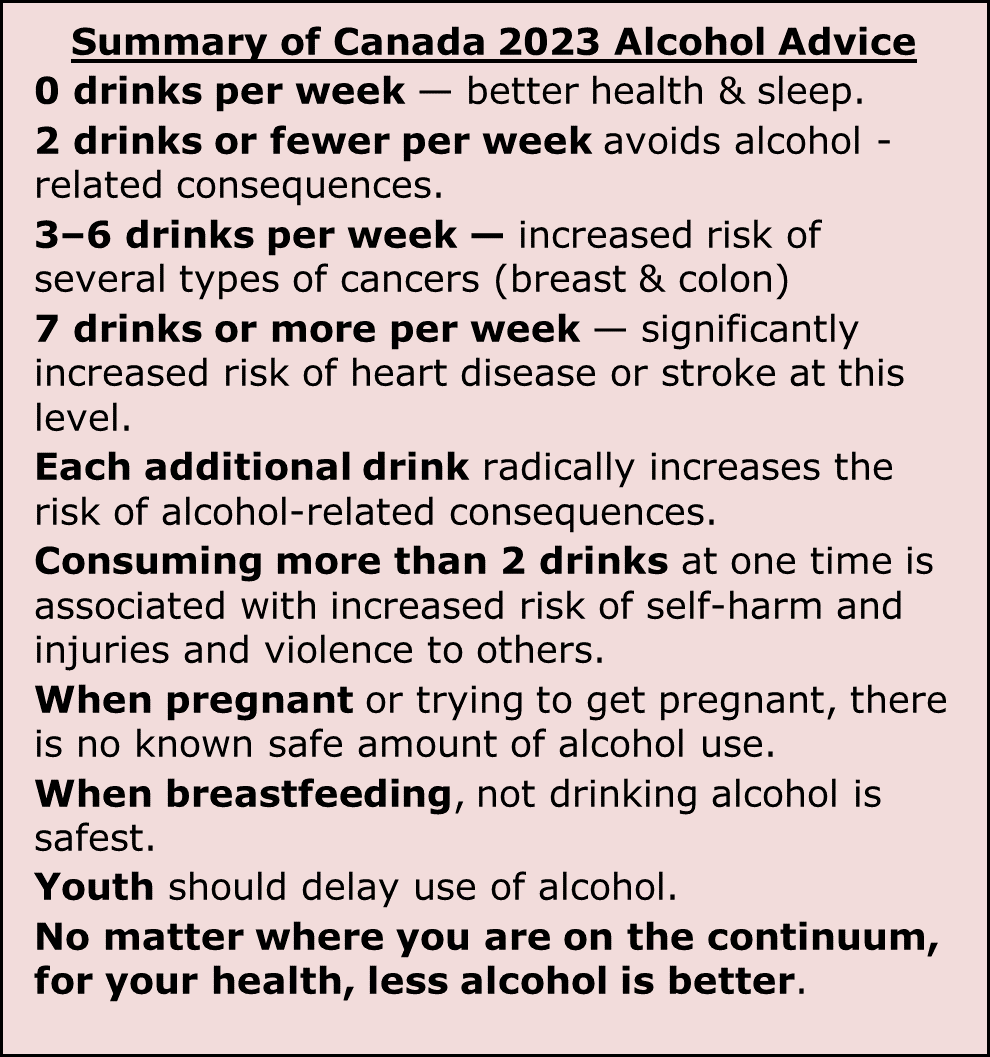Reducing Alcohol for a Positive Lifestyle
Fact Sheet 26 - article from April 2023 Newsletter
Wine and beer have been brewed since antiquity and will always be with us. Belgian monasteries in the Middle Ages, unable to grow grapes suitable for wine, needed to provide a beverage for important guests and so began the production of beer using grains. They began with herbs and spices and later added hops; soon consumers realised their beer was much safer to drink than the often-contaminated town water supply. In the 1980’s it was suggested the reason why France had a low incidence of heart disease, despite their high-cholesterol animal fat diet, might be their high consumption of red wine. This is referred to as the French Paradox, and provides legitimacy to those who wish to consume more vino.
There is universal agreement that excess alcohol consumption - binge drinking (consuming 4 or more drinks on an occasion for a woman or 5 for a man) and heavy drinking (10 or more drinks for a woman or 15 or more drinks for a man per week) - is bad for your health. But what about alcohol in moderation?
In January of this year Canada’s Public Health leaders announced a change in health advice, advising that consuming No Alcohol improves health, drinking less than two drinks per week minimises any adverse risk, and drinking more than that has harmful consequences. (see chart) Canadian media report a mixed reaction to the advice but that 40% of Canadians are considering reducing their consumption of alcohol.
Alcohol consumption is also a contentious topic in NZ. Parliament has just voted, and soundly defeated, the first reading of Green MP Chloe Swarbrick Private Members Bill on the ‘Sale and Supply of Alcohol (Harm Minimisation)’ which endeavoured to limit liquor outlets and alcohol sponsorship in sport.
Genetic variations protect some and not others from the adverse effects of alcohol which the liver breaks down to short-lived toxic acetaldehyde, then transformed to acetate and finally converted to water and carbon dioxide for elimination. The inebriating properties of alcohol cause a plethora of detrimental effects in society, and its long-term sequalae are an increased risk of cancer (acetaldehyde) and damage to all organs, especially in the developing foetus and teenage brain.
Contrary to popular opinion that alcohol prolongs life chiefly by reducing the risk of cardiovascular disease, the World Heart Federation states “alcohol is not good for the heart” and advises all persons living with heart, vascular and chronic disease to abstain from its use.
Be proactive this year; why not choose one small change in this area in favour of a healthy lifestyle?
RJC

